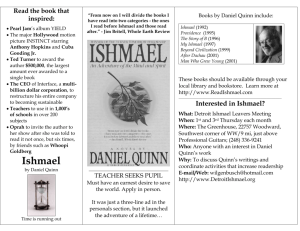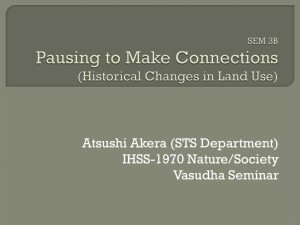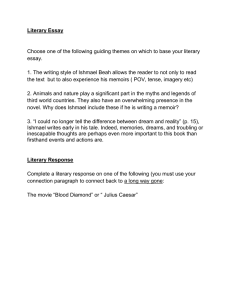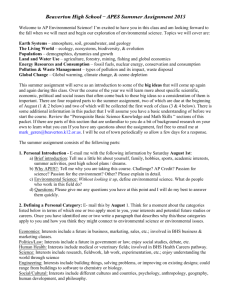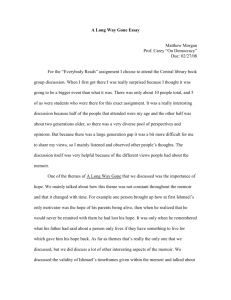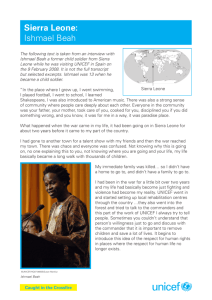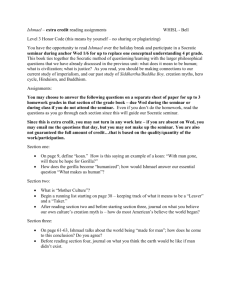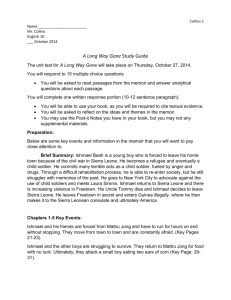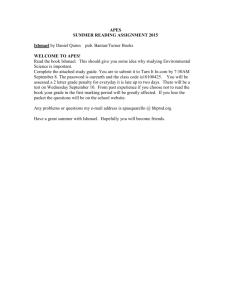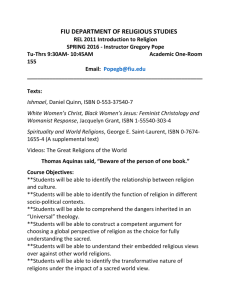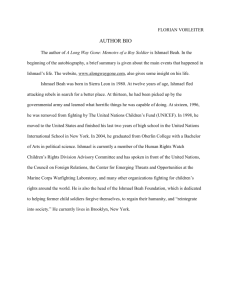11th Grade Summer Reading Assignment
advertisement
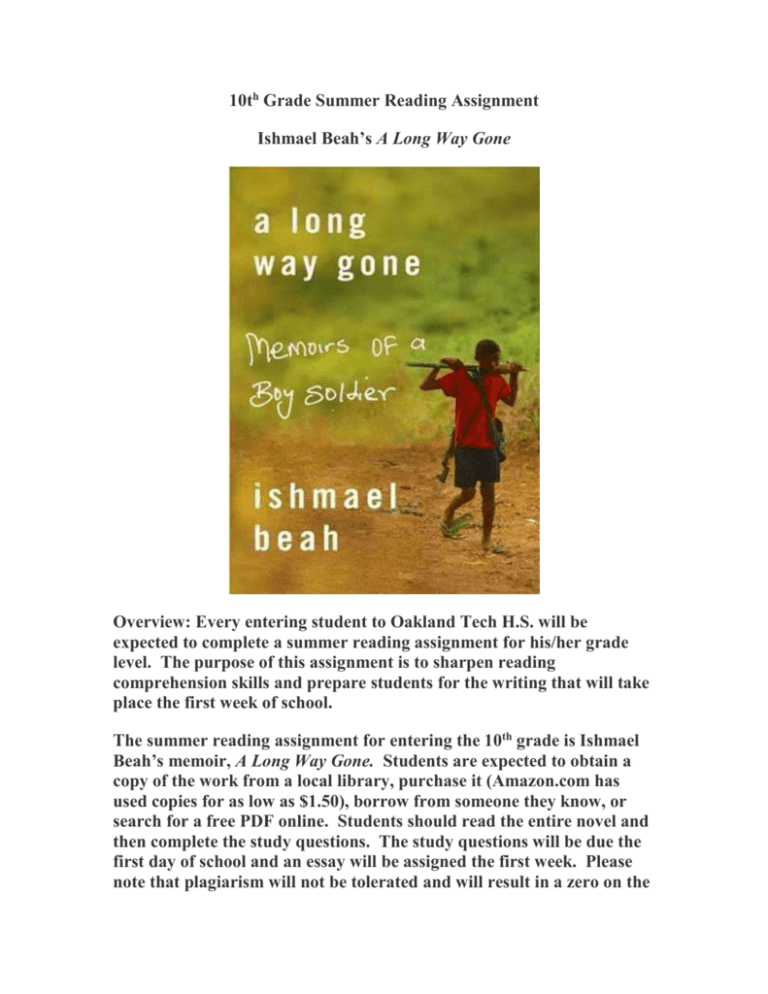
10th Grade Summer Reading Assignment Ishmael Beah’s A Long Way Gone Overview: Every entering student to Oakland Tech H.S. will be expected to complete a summer reading assignment for his/her grade level. The purpose of this assignment is to sharpen reading comprehension skills and prepare students for the writing that will take place the first week of school. The summer reading assignment for entering the 10th grade is Ishmael Beah’s memoir, A Long Way Gone. Students are expected to obtain a copy of the work from a local library, purchase it (Amazon.com has used copies for as low as $1.50), borrow from someone they know, or search for a free PDF online. Students should read the entire novel and then complete the study questions. The study questions will be due the first day of school and an essay will be assigned the first week. Please note that plagiarism will not be tolerated and will result in a zero on the assignment. Plagiarism is the taking of someone else’s work, whether you know them or not, and trying to pass it off as your own. Directions: Answer each question as thoroughly as possible using full sentences. You may choose 10 out of the 11 questions to answer. 1. What did Ishmael’s personal history communicate to you about the recent history of his homeland? 2. This book describes two kinds of domestic living in detail, village life and city life. Which does Ishmael prefer, and why? 3. Violence is, of course, a major theme in these pages—physical, psychological, social, and otherwise. Indeed, some of the more violent passages in this book make for very difficult if not unsettling reading. In one paragraph, reflect on what Ishmael’s many violent experiences taught you about the consequences or aftereffects, both intended and unintended, of violence. 4. What kinds of music does Ishmael like, and why? What is it about music that matters to Ishmael, or that moves him so? Why is it important to him, especially during his rehabilitation at Benin Home? 5. “I could no longer tell the difference between dream and reality” (p. 15), Ishmael writes early in his tale. Indeed, memories, dreams, and troubling or inescapable thoughts are perhaps even more important to this book than firsthand events and actions are. Talk about A Long Way Gone as a psychological memoir, comparing and contrasting it with other works you have experienced in this vein. 6. Review the tale of the “wild pigs” (p. 53) that Ishmael learned about from his grandmother, and the “Bra Spider” story (p. 75) that Musa tells Ishmael at the other boys. What other myths or legends did you come across in this book? After naming a few, explain the particular narrative and cultural purposes of each. 7. Nature is often personified in A Long Way Gone. Point out several instances of this—from throughout the memoir—and then write a short poem or story that employs anthropomorphism in a similar manner. 8. Early in his account, Ishmael laments how “the war had destroyed the enjoyment of the very experience of meeting people” (p. 48). Where else does he express this fact, or else suffer from its consequences? Discuss the book’s ongoing struggle between trust and survival. Can these two phenomena coexist? 9. A Long Way Gone is a book with much to say on the subject of family: family life, family relationships, and family environment. Write a paragraph that catalogs and characterizes the many different families that Ishmael has belonged to over the course of his young life. 10. How are “civilians” depicted in this book? How are they thought of? How are they treated? 11. Finally, discuss this harrowing account of civil war and childhood as a meditation on finding one’s ultimate purpose. How does Ishmael, at a relatively early age, arrive at what seems to be his calling in life? Adapted from Macmillan Co. Copyright 2007

